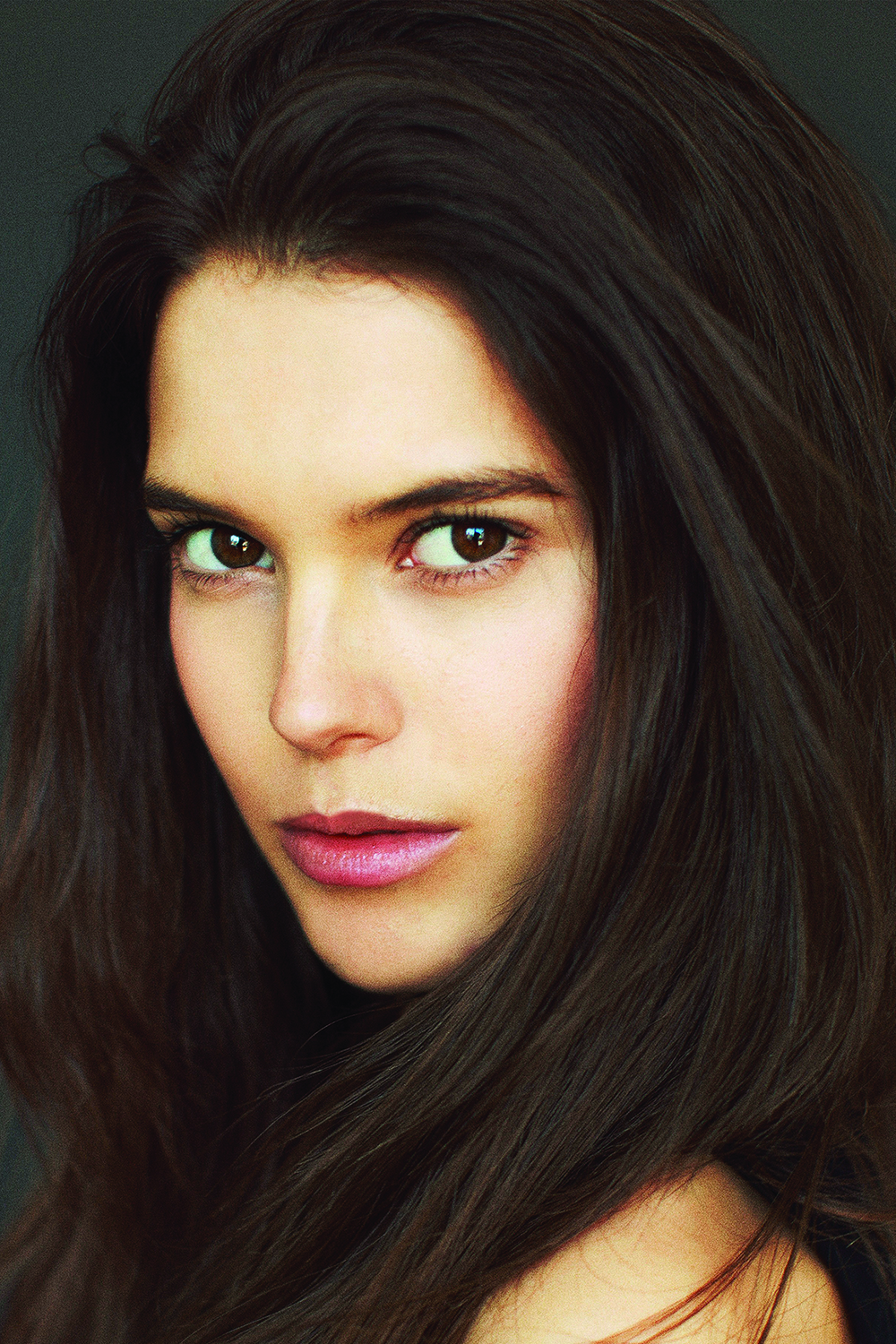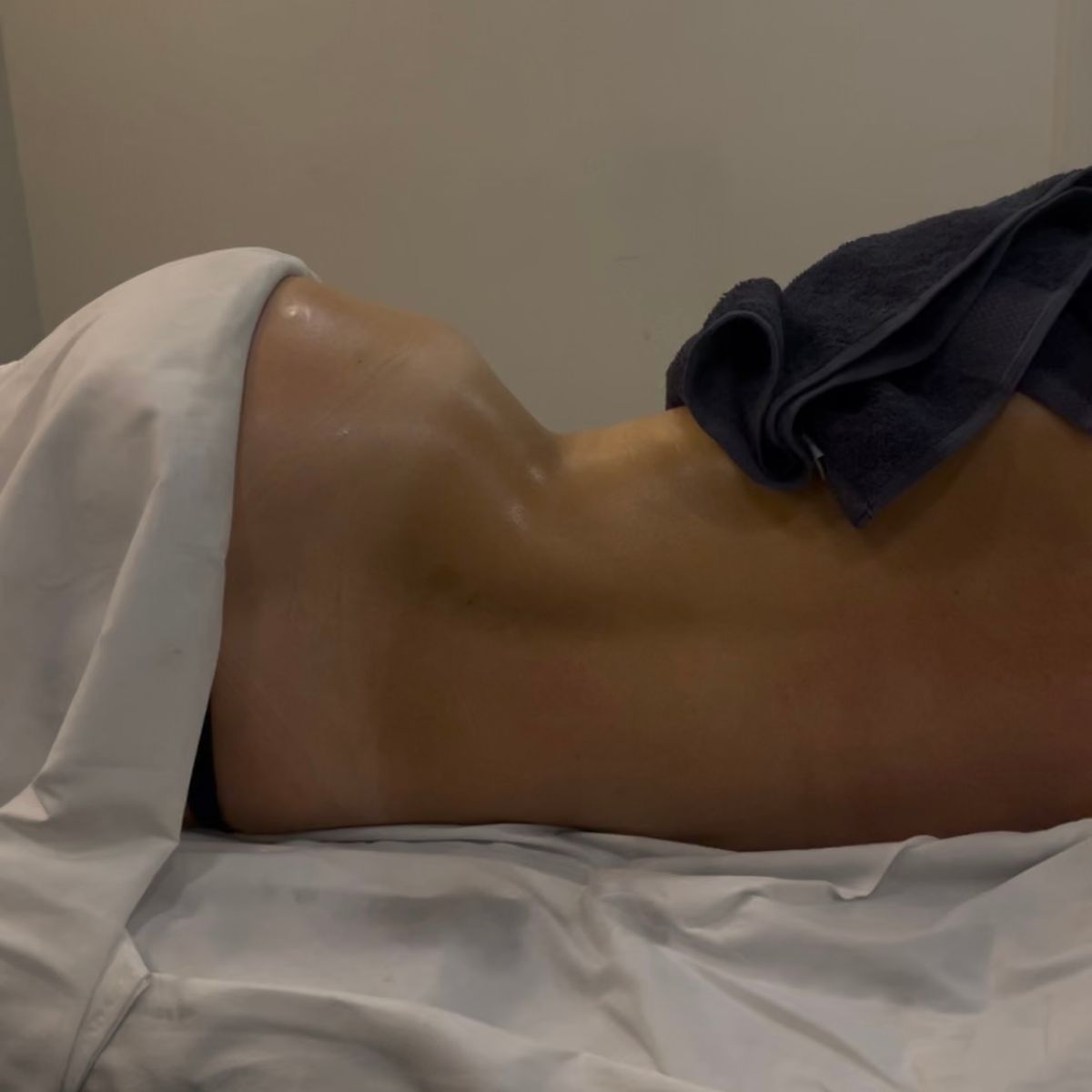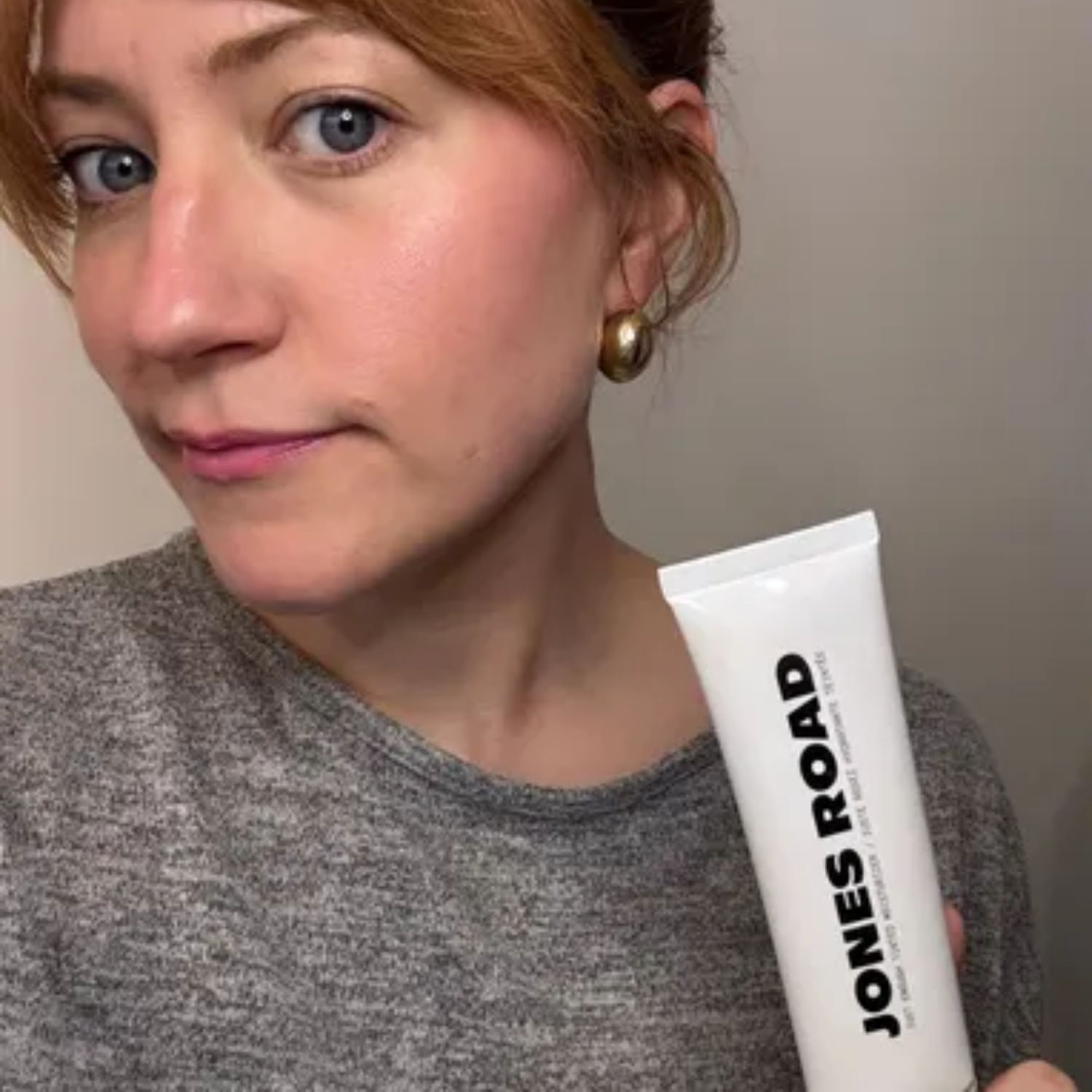Meet ‘The Jamie Oliver of the modelling world’ who's blowing the lid on nutritional myths
Not content on re-educating models on nutrition with her 'Be Well Collective' Sarah Ann is coming for you...

Not content on re-educating models on nutrition with her 'Be Well Collective' Sarah Ann is coming for you...
After an impressive modelling career that has included shoots for Japanese Vogue and walking the runway for the likes of Dolce and Gabbana, Sarah Ann Macklin has hit the books, and trained as a nutritionist.
Now after years spent in sharing model houses filled with multi-cultural anxiety and late night fashion week fittings Sarah Ann wants to re-educate models in how nutrition can affect one’s wellbeing. Her initiative entitled the Be Well Collective - now in it's second season - has set out to educate, support and provide models with the tools to withstand the pressures the fashion industry and fashion week puts on their bodies. After a series of talks at her model agency, Select Model Management Sarah has even taken over the agency’s vending machine to provide the girls with the right food to combat against everything modeling throws at them.
Her wellbeing advice doesn’t apply to models only - oh no! Sarah Ann’s tips apply to anyone with a busy life and who is desperate to live a healthy lifestyle– the right way. Here Sarah talks you through some of the nutritional fads that aren’t even worth your time, and offers her pearls of nutritional wisdom. This girl is a bonafide genius so take serious notes...
In the UK people spend almost £3bn on fitness equipment and gym membership in January, and 45% take on a detox plan according to a study by Voucher codes. February has already rolled around and have you even kept up with either?
Every year my smile deflates when I hear people telling me they are on a detox plan. Our bodies do a great job of detoxifying themselves. The word detox originates from detoxification which medically is used to treat alcoholic or drug addiction. A few weeks of over indulgence does not mean that we need to start a detoxification. We just need to adjust healthier options, and increase our sedentary lifestyles of television marathons, to evening walks or physical activity.

The wellness industry, which is now a booming business, has created clever marketing strategies for us to believe their products will help us lose weight, or Instagram feeds telling us certain foods will make us feel better than ever. Here, I uncover many of the fad’s I’ve seen and give you the scientific facts. In hope to save you a few pennies, or steer you in the correct direction of nutrition.
Marie Claire Newsletter
Celebrity news, beauty, fashion advice, and fascinating features, delivered straight to your inbox!
The Myth: Eating tryptophan foods will boost your serotonin
The Reality: Let’s be honest, most of us feel low in our moods at this time of year, and anything we can do to help increase our mood is obviously very welcome. I have read many times that eating foods which contain the amino acid tryptophan can help increase our happy hormone serotonin. To a certain degree this is correct, as tryptophan is the precursor to serotonin. People with depression usually have low levels of tryptophan.
However, when we consume amino acids such as tryptophan through our diet, our serotonin levels drop because the protein itself inhibits it. Confusing I know. Yet, many people are completely unware and decide to go on a tryptophan field day. These foods usually include turkey, yogurt, red meat, fish, bananas and chickpeas. This no in no means harmful, but people soon become disheartened when they feel no effect.
Strategic eating here is the key. Quite simply it has been found, the way tryptophan can help boost our happy hormone is through eating of carbohydrates alone with no protein. This allows tryptophan to enter your brain and boost serotonin levels.
Some low protein sources of tryptophan-rich foods include: Green leady vegetables such as spinach, soybeans, asparagus, sea vegetables, cauliflower, chocolate, almonds and sunflower seeds.
The Myth: Activated Charcoal is great for detoxing toxins
The Reality: Activated charcoal means, charcoal is reheated and activated through special processing, increasing its surface area. Charcoal can cling to certain drugs and poisons in our stomach, with medical professionals using it in bulk to help reduce the absorption in extreme poisoning cases.
Due to this, many people have been led to believe it can help as a hangover cure, binding and removing alcohol. Yet this simply isn’t true, as the charcoal cannot bind to alcohol’s chemical structure. Charcoal also cannot bind to metals, and therefore it will not remove toxins from our body. There has been no scientific evidence to prove that charcoal is in any way a health benefit. Our liver does a fantastic job of this, in detoxifying the body.
Charcoal can however bind to prescription drugs. Anybody on medication or prescription drugs should not be taking any form of charcoal, as it might make the medication less effective.
The Myth: Sugars all different if they come from a natural source
The Reality: I recently was asked to present a talk on sugar. I started by asking the audience, “Who believes coconut sugar is a healthier alternative to white sugar?” About 50% of people put their hands up.
Coconut sugar is structurally the same as white sugar, alongside maple syrup and honey. Yes! All these healthy baking alternatives, and no refined sugar treats we are eating, are no different. Replacing white sugar with these alternatives will make no difference, and you will probably over indulge because you think it’s ‘healthy’.
My advice? Cut out all free sugars such as white sugar, brown sugar, maple syrup, honey, molasses, syrups and fruit juices. Stick to eating whole food. The lowest fruit with sugar is any form of berries, kiwis, avocado and watermelon.
The Myth: I don’t need any supplements
The Reality: To a certain degree, I do believe this is true. We have become a nation of pill poppers, whereby if we are eating a balanced diet we should easily be gaining all the nutrients we need.
There is one vitamin though we struggle to gain living in the UK. Vitamin D, aka the sunshine vitamin. During October-March the rays are not strong enough to penetrate our skin and synthesize (produce) vitamin D. In the UK 30-40% of all age groups are classed as vitamin D deficient, according to the 2016 Scientific Advisory Committee on Nutrition (SACN). If you are from an ethnic background, you are at a higher risk of being vitamin D deficient.
Vitamin D is essential for our bone health, and without it we are at an increased risk of brittle and thinning bones. Vitamin D is also linked to diabetes, allergies, common colds and upper respiratory tract infections, depression, mood disorders and gut health.
Therefore, I recommend everyone to take a vitamin D3 spray (not D2) during these winter months. You should can also increase fatty fish and eggs in your diet, which contain small sources of vitamin D, but this is still not sufficient to the recommend daily intake.
The Myth: Vegan diets are the healthiest
The Reality: Firstly, let me point out I have no problem with vegan diets. I have many friends who are vegan and I fully support them. Plus, I love the high fruit and vegetable intake vegan diets bring.
However, come January the over indulgent meat eaters all of a sudden believe drastically becoming vegan is going to make them skinny and full of beans. This is where my concern is.
Cutting out any food group can bring detrimental health outcomes. Vegan diets are very restrictive, and lack in many vitamins and minerals, whereby you should consult a nutritionist if you are thinking about adopting a vegan lifestyle. Vegan diets are very carbohydrate heavy, which we know isn’t the best approach to weight loss.
What you need to be aware of is it is easy to become protein deficient. Unlike a wide variety of animal products such as meat, diary, eggs and fish, which contain all your essential amino acids. Vegan foods tend to only contain 3 or 4 of these essential amino acids (apart from quinoa and soy), which means you need to combine different foods to make sure you gain the full 9 essential amino acids. If not you can easily become protein deficient, leading to weak muscles, ageing and a sluggish metabolism. Not great for that weight loss.
B12 is key for our brain functioning and formation of red blood cells. So very important! Vegans cannot gain B12 from their diets, so its vital you supplement with this.
Moving on to Omega 3 I would recommend on supplementing with omega 3 EPA/DHA, which we gain from fatty fish. This chemical structure has been linked a lot to cognitive functioning and depression. In vegan diets you wouldn’t gain any, which will only add to the winter blues.
Sarah Ann Macklin is a qualified nutritionist and model represented by Select Model Management.
The leading destination for fashion, beauty, shopping and finger-on-the-pulse views on the latest issues. Marie Claire's travel content helps you delight in discovering new destinations around the globe, offering a unique – and sometimes unchartered – travel experience. From new hotel openings to the destinations tipped to take over our travel calendars, this iconic name has it covered.
-
 I tried Sofia Grainge’s go-to lymphatic drainage massage - and the results were astonishing
I tried Sofia Grainge’s go-to lymphatic drainage massage - and the results were astonishingThe results go way beyond aesthetics.
By Ashleigh Spiliopoulou
-
 My dry skin loves a tinted moisturiser in the summer months—this one is *outstanding*
My dry skin loves a tinted moisturiser in the summer months—this one is *outstanding*It ticks the boxes for coverage and nourishment
By Matilda Stanley
-
 I was overusing (and wasting) my skincare products until a dermatologist taught me this trick
I was overusing (and wasting) my skincare products until a dermatologist taught me this trickLess slathering, more targeting.
By Darcy Brown